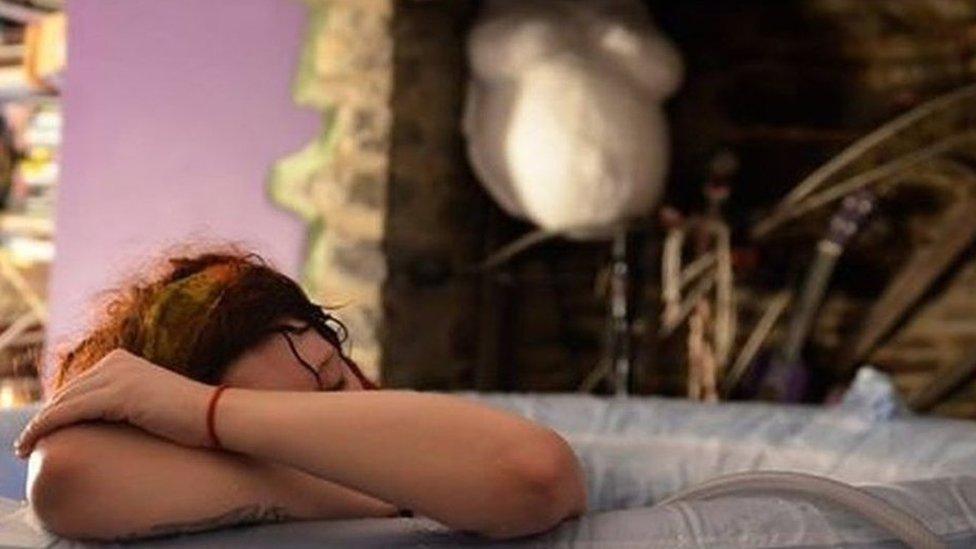Freebirth: 'Giving birth without medical help felt safer'
- Published
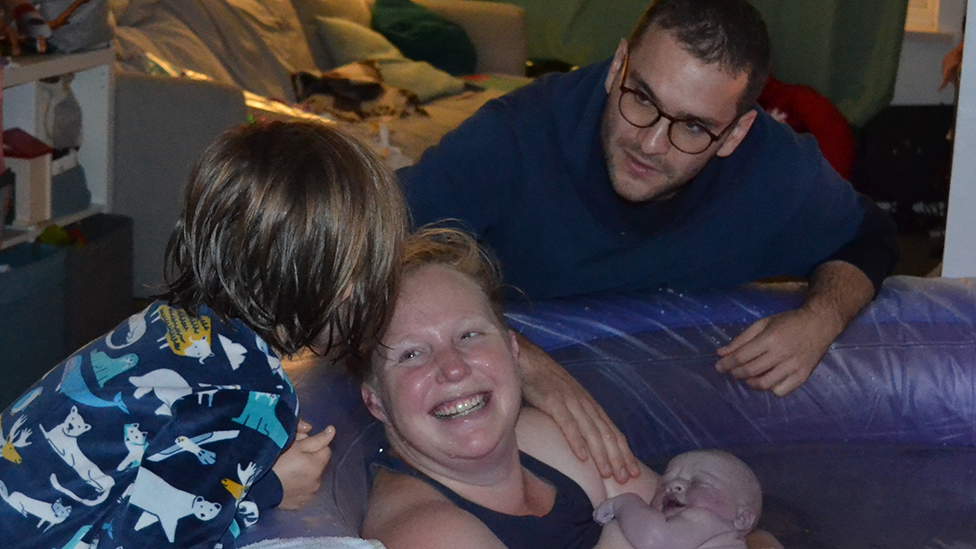
Jocelyn says freebirthing at home was a "beautiful family moment"
A woman says she chose to give birth at home without medical assistance because it felt like the safest option.
Jocelyn, 35, said she chose to freebirth, external after feeling the birth of her first child was over-medicalised.
Of 1,700 participants who took part in a 2020 UK study, 4% said they had seriously considered freebirth, with one of its authors saying a shortage of midwives was making births dangerous.
A birth charity said freebirth endangered lives of mothers and babies.
'Risky business'
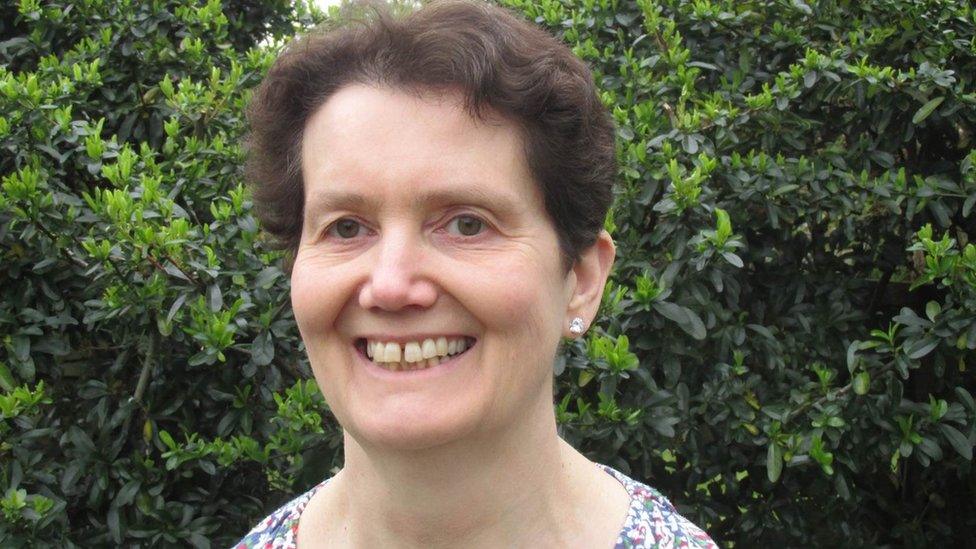
Kim Thomas from the Birth Trauma Association urged women "not to be taken in by people promoting an idealised view of freebirth on social media"
Kim Thomas, CEO of the Birth Trauma Association, said: "The pandemic has proved hard for a lot of women, because partners have sometimes been excluded from being present at the birth, and some trusts have stopped offering home births.
"We know too that some women who have had traumatic experiences giving birth in hospital find the idea of a free birth, without medical intervention, appealing.
"Nonetheless, birth is a risky business and giving birth without a midwife or doctor present endangers the life of both the mother and baby.
"We strongly urge women not to be taken in by people promoting an idealised view of free birth on social media."
Dr Pat O'Brien, consultant obstetrician and vice president of the Royal College of Obstetricians and Gynaecologists (RCOG), said giving birth without support may put mother or baby at risk as immediate care from a qualified midwife or obstetrician may be critical if complications occur.
He said complications could include the mother heavily bleeding or the baby needing assistance to breathe after birth.
The Royal College of Midwives (RCM) said: "Having a qualified midwife or other skilled medical profession present throughout childbirth significantly reduces the risk to both woman and child."
'Beautiful family moment'
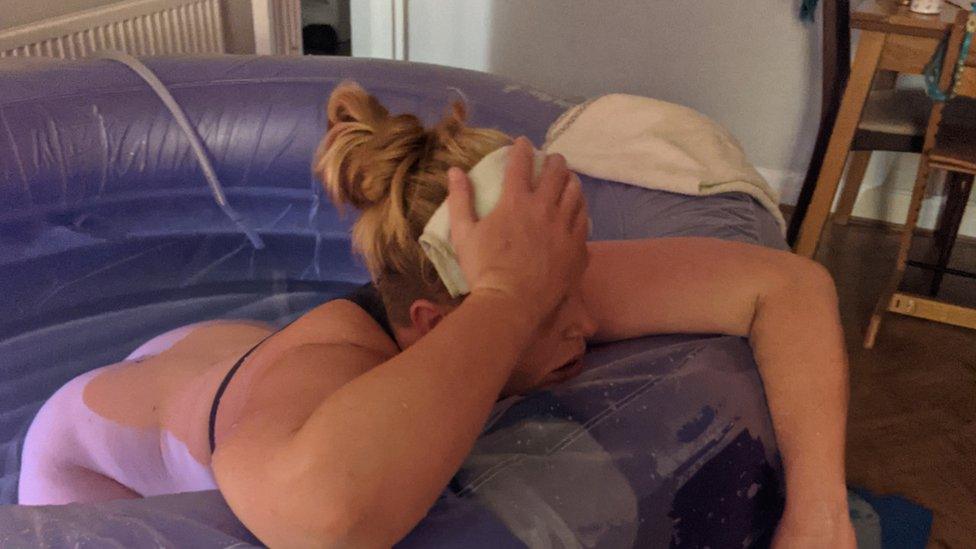
The only people present at the birth of Jocelyn's second child were her husband, her five-year old daughter and her doula
Jocelyn, from Cardiff, said she gave birth to her second child on 6 October in a birthing pool at home.
The only people present were her husband, her five-year-old daughter and her doula, external, which is a person who supports women through and after labour and birth.
"It just felt really normal, it was just a physical process that happened really efficiently, it was this beautiful family moment," she said.
Jocelyn said after giving birth to her first child in a hospital in England, she thought "never again" but chose not to engage with the NHS this time for a number of reasons.
"I felt managed and messed with, I just came out of it feeling really disrespected," she said.
"It felt like the safest option."
She said for healthy women having uncomplicated pregnancies, "medical intervention, even medical monitoring, hinders the natural process of birth".
"I just didn't want to be interfered with this time," she said.
Her concerns about NHS maternity services are far reaching.
"The framework in which the midwives are being forced to work in is not conducive to women having safe births where they come out of it feeling heard and respected and powerful," she said.
"Women need to be listened to and trusted... this crisis is coming to a head."
She was also concerned about staff shortages - midwives across the UK have taken part in marches, claiming services are at an "unsustainable" level and there is a staffing crisis - and seeing lots of different health professionals through her pregnancy.
"I would choose a continuity of care midwife over freebirthing every time but that wasn't an option," she said.
Covid restrictions also played a part in her decision: "I wanted my daughter to witness the birth of her siblings and that wouldn't have been allowed in the hospital."
She said she emailed the health board's head of midwifery "just stop any paperwork nonsense" and received a response saying the health board respected all women's choices and invited her for a chat but she did not respond.
Instead she bought a blood pressure machine to monitor herself at home, enrolled in some pregnancy studies where her health was monitored, made sure she knew symptoms of pregnancy complications and paid for a private anomaly scan at 20 weeks.
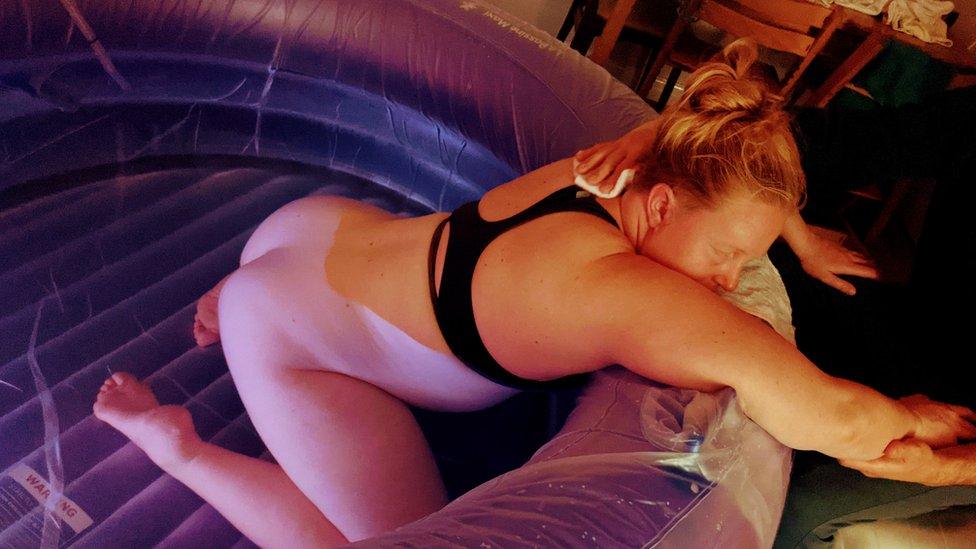
Jocelyn did not engage with NHS maternity services during her pregnancy
She said if complications arose during labour she could have been driven to Cardiff's University Hospital of Wales within 10 minutes.
It is not illegal to give birth unattended, external by a midwife or healthcare professional but it is illegal for anyone present during the labour or birth to undertake the roles of a midwife or doctor, except in an emergency.
A spokesman for Cardiff and Vale health board said: "We apologise Jocelyn was unhappy with the provision of care available and felt this did not meet her needs."
He encouraged people to discuss their options with their midwives and said birth plans would continue to be followed but "in some cases may be in a different environment".
He said at times the midwifery-led unit and home birth service had been temporarily closed "to ensure we continue to provide high-quality, safe and effective care" but were currently open.
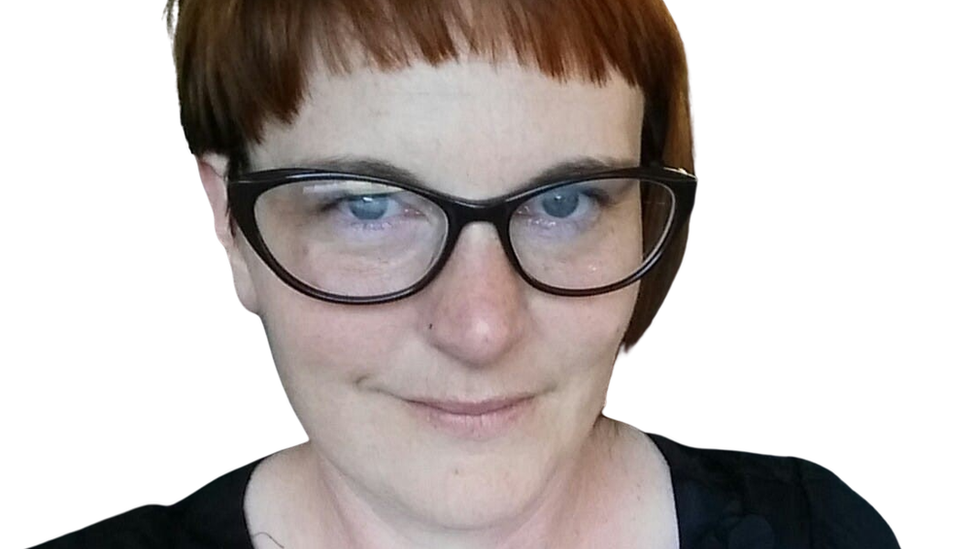
Dr Mari Greenfield has worked as a doula
'Danger to parents and babies'
Dr Mari Greenfield is a postdoctoral fellow at King's College London whose work focuses on maternity services.
She carried out an online survey, external between 10 and 24 April 2020 which was open to those in the third trimester of pregnancy, those who had given birth since the beginning of the lockdown period in the UK, and the partners of those pregnant in these circumstances.
Of the 1,700 who responded, 72 mentioned that they had seriously considered freebirthing with reasons including a desire to avoid hospitals, being unable to have a partner with them throughout labour, a lack of access to a birthing pools and not having childcare during the pandemic.
She said NHS maternity services in the UK were "at crisis point".
"The biggest current issue is that there are not enough midwives for the number of babies being born," she said.
"We are now at the point where the danger to parents and babies is immediate and obvious.
"The midwives who are still in post are exhausted, and therefore more likely to become ill, or to leave, causing ever more problems."
She said people were being "pressured into medicalised births, often at the expense of their mental health" and midwives were spread so thinly they could not offer suitable care.
"It is dangerous," she said.
"People are considering freebirth - not because that's their first choice, which is a different matter - but because they are so scared of the state of maternity services.
"We're hearing of babies being born in car parks after parents are diverted to hospitals some distance away. This is not safe."
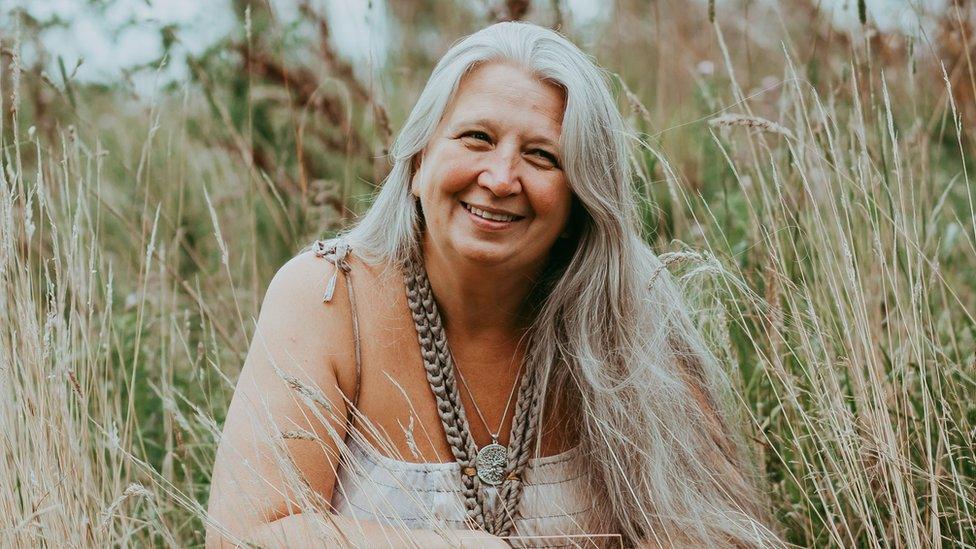
Doula Samantha Gadsden says women are turning to freebirth for a number of reasons
'People don't trust maternity services'
Samantha Gadsden, a doula from Caerphilly who supports women all over the UK, said more women were giving birth alone, and not always through choice.
"From my particular experience of having a home birth group with nearly 10,000 members, freebirth is on the rise, along with everything else, carpark birth, birth before the arrival of a midwife, ambulance birth, everything that happens when midwifery isn't staffed properly," she said.
"I used to talk about freebirth to freebirthers and now I'm talking about it as preparing to birth on your own wherever that may be, be that in a hospital or be that home because we cannot guarantee anymore that you're actually going to have somebody with you and I think that's heart breaking - it's not what I want to be saying."
She said the closure of some midwife-led birthing units and home birth services was also making more turn to freebirth: "Women don't want to be corralled into a consultant-led birth in a consultant unit, which itself is often short staffed.
"I have always supported free birth as an informed choice... but I don't think anybody should be forced into freebirth."
She added: "Some women and birthing people don't trust maternity services and to be honest, I can't say I blame them.
"Individual midwives are mostly doing their best - this is down to a system that has systematically understaffed and under resourced them and now we're seeing the impact of that."
She said many midwives were afraid: "The midwives I'm speaking to are at the end of what they can cope with., they're terrified they're going to do something wrong and then get blamed in a system that blames midwives.
"We can't carry on like this because we're going into a crisis where women are birthing alone, and not by choice."
Helen Rogers, director for Wales at the RCM, said: "While we recognise and respect every woman's right to develop a birth plan that's right for her, we do not believe that she would want to put her health or that of her baby at risk by attempting to give birth without the support of skilled medical professional."
She said despite additional pressure on maternity services during the pandemic and significant staff shortages, women should be "reassured that midwives and maternity staff are doing all they can to ensure they continue to receive safe and high quality care".
The RCOG's Dr O'Brien said: "Every woman should have the right to give birth in an environment where they feel comfortable and should be supported in their birth choices.
"It is important that women are made fully aware of the risks and benefits of giving birth in different settings so that they can make an informed choice. While the majority of labours and births are uncomplicated, in some situations when a complication does occur, the immediate care of a qualified midwife or obstetrician may be critical, for either the mother or the baby.
"Giving birth without any support present may put mother or baby at risk in these circumstances."
The Welsh government said it was committed to providing quality maternity care including one to one midwifery care for labour and birth and training places for midwives had doubled over the past five years.
It said throughout the pandemic health boards had assessed service provision to ensure safe, quality services.
"At times this has required centralisation of services to consultant led units, midwives have worked with families to ensure they have positive birth experiences," it added.
How are maternity services across Wales impacted?
Swansea Bay, external: Home birth service and the midwife-led birth centre at Neath Port Talbot Hospital remain suspended but it said plans were in place to re-establish all services in the near future. It said it was starting to see some stabilisation of its staffing situation. A nominated partner can attend first appointments, decision making appointments, the early pregnancy dating scan and 20-week scan, established labour and planned procedures, such as C-sections. After the birth the nominated partner can have one two-hour visit a day by prior arrangement.
Hywel Dda, external: Home births and midwife-led units are operating as normal. Those attending all antenatal appointments and scans can take one person with them for, birth partners can stay during the whole labour, inpatients on antenatal and postnatal wards can have one person, ideally their birth partner, visit for a maximum of a two-hours a day.
Betsi Cadwaladr, external: Its home birth service and midwife-led units are fully up and running. It has fewer than five whole time equivalent vacancies across the health board and the sickness rate in midwifery is currently 6.5%. Access is restricted to a single birth partner for women in active labour or having elective or emergency C-sections. Postnatal visiting is restricted to a single birthing partner with a pre-booked appointment.
Aneurin Bevan, external: Its home births service and midwife-led units is available. It said it was staffed sufficiently to manage the current birth rate but was actively recruiting for a small number of vacancies. One birth partner can attend all of labour and birth and the antenatal and postnatal ward between the hours of 08:00 and 20:00. It said very few women choose to freebirth within the area and it has had no women choosing to freebirth in the past month.
Cwm Taf Morgannwg, external: The health board has been asked for information.
Cardiff and Vale:, external The midwife-led unit and home birth service have at times been temporarily closed but are currently open. One birth partner can attend the12 week dating scan, 20 week anomaly scan, the fetal medicine department and early pregnancy assessment unit. One birthing partner may be present through the duration of active labour and the immediate postnatal period and visit the maternity ward for two hours a day.
Powys, external: The health board said it had maintained full service provision, including home births and midwife-led birth centres and had had no significant periods of short staffing. One birth partner can be present during the birth and wherever possible to remain until discharged. It said as it aimed to return women home within six hours of the birth there was no need for visitor provision. It said its records indicate no-one under its care opted to give birth without a medical professional being present during 2021.
Cwm Taf Morgannwg, external: The health board said it had full service provision available to families accessing maternity services, including home births and midwife-led birth centres. One birthing partner may be present through the duration of active labour and the immediate postnatal period and visit the maternity ward for one hour a day.
- Published10 December 2021
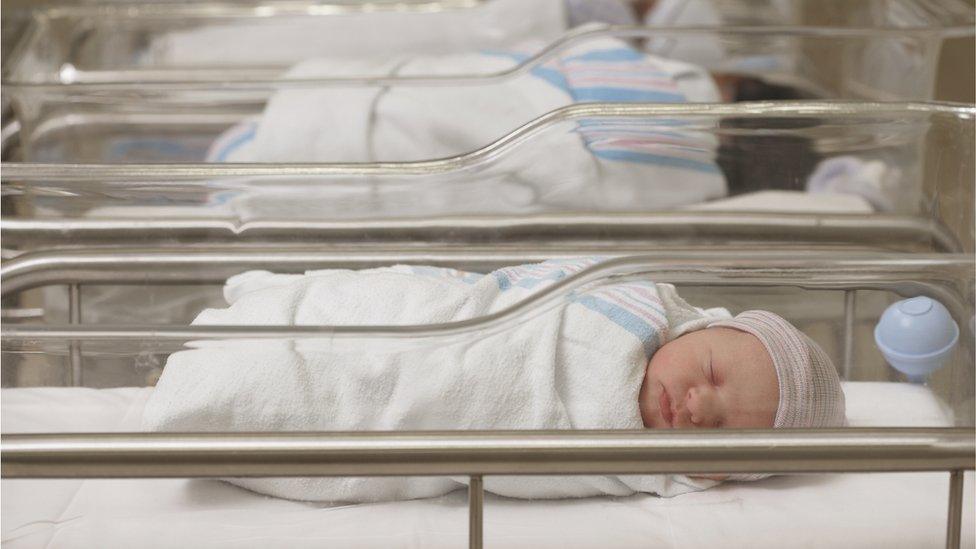
- Published25 February 2018
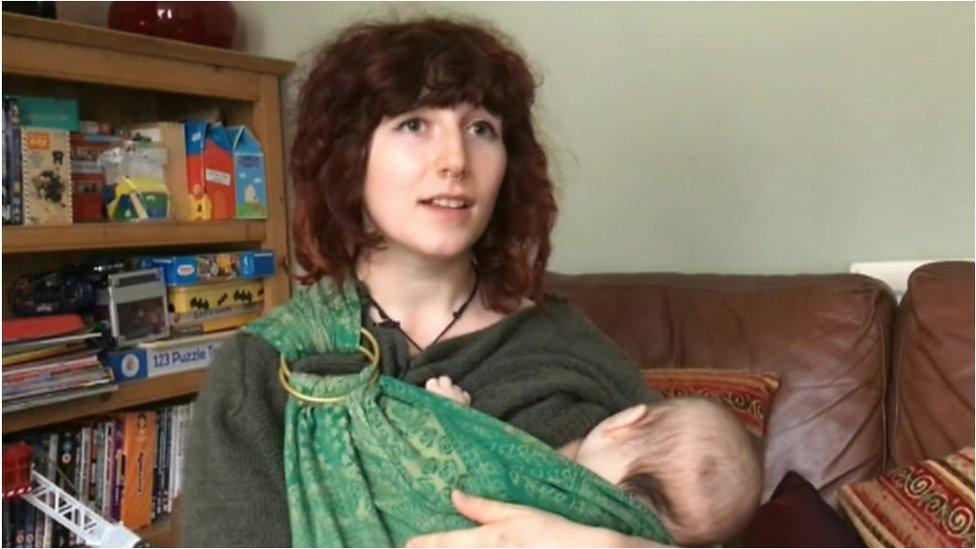
- Published4 January 2022
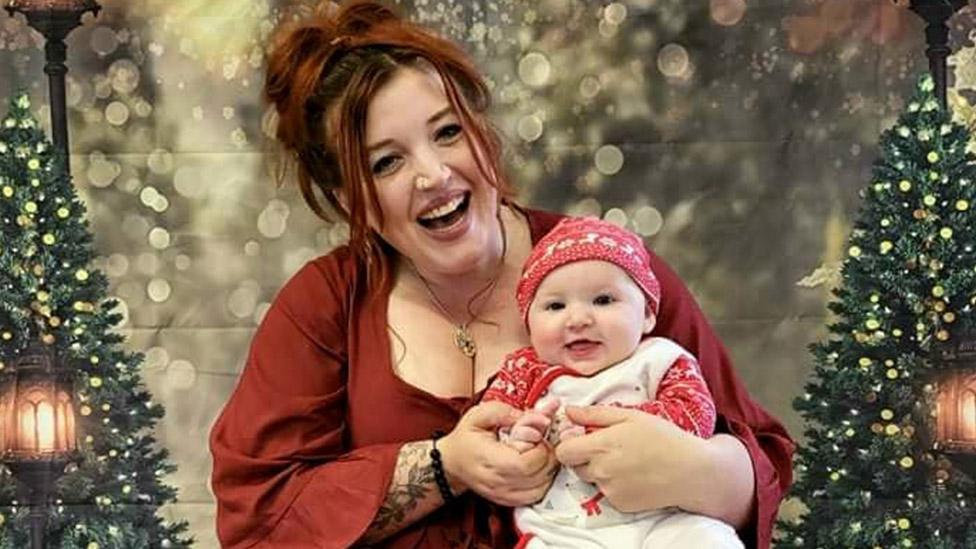
- Published25 February 2018
